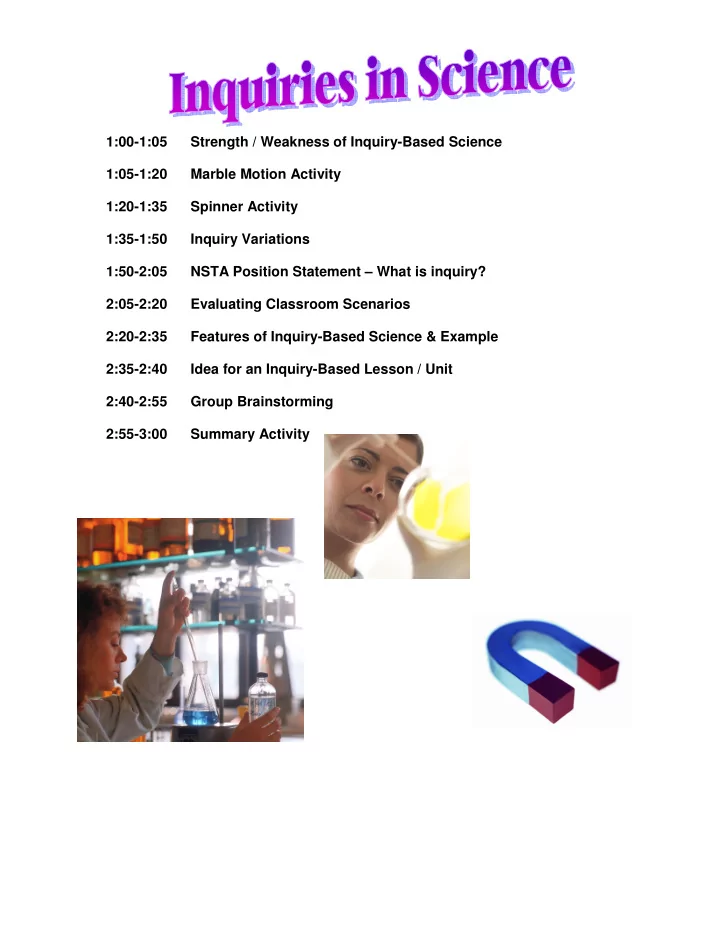

1:00-1:05 Strength / Weakness of Inquiry-Based Science 1:05-1:20 Marble Motion Activity 1:20-1:35 Spinner Activity 1:35-1:50 Inquiry Variations 1:50-2:05 NSTA Position Statement – What is inquiry? 2:05-2:20 Evaluating Classroom Scenarios 2:20-2:35 Features of Inquiry-Based Science & Example 2:35-2:40 Idea for an Inquiry-Based Lesson / Unit 2:40-2:55 Group Brainstorming 2:55-3:00 Summary Activity
What inquiry science is What inquiry science is not Benefits of inquiry science Challenges of inquiry science
Image from: Krajcik, Joseph S., et al., eds. Teaching Science in Elementary and Middle School Classrooms . Boston: McGraw Hill, 2003. Examples of Driving Questions: � What kinds of insects live on our playground? � Why do certain chemicals cause explosions? � How can I care for the various animals in our classroom? � How healthy is our stream? � Why do I have to wear a helmet and knee pads when I’m rollerblading? � How do I stay in a roller coaster car? � Which is more important – the heart or the lungs?
� Engage: a student's interest is captured and the topic is established. (Driving Question, preassessment for misconceptions) � Explore, in which the student is allowed to construct knowledge in the topic through facilitated questioning and observation. � Explain, in which students are asked to explain what they have discovered, and the instructor leads a discussion of the topic to refine the students' understanding. � Elaborate, in which students are asked to apply what they have learned in different but similar situations and the instructor guides the students toward the next discussion topic. � Evaluate, in which the instructor observes each student's knowledge and understanding, and leads students to assess whether what they have learned is true. Evaluation should take place throughout the cycle, not within its own set phase. (For a performance assessment, use GRASP: Goal, Role of student, Audience, Situation, Product)
Recommend
More recommend